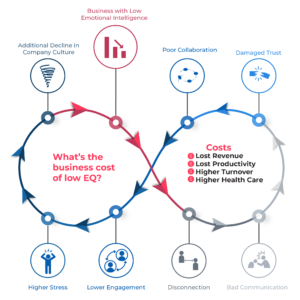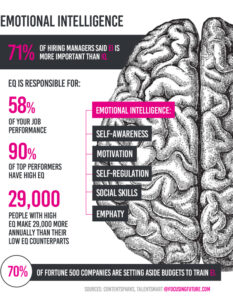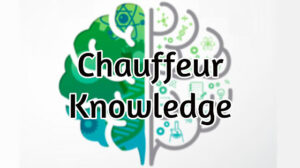by chandiniann | Jun 25, 2024 | Interesting Reads

Image Courtesy: PNGTree
In the contemporary business world – crazy paced, the role of office administration is critical and complex. It requires organizational skills and the ability to navigate interpersonal dynamics and foster a positive work environment. Outsourcing to a proven administration leader with high emotional intelligence (EI) can bring about a meaningful and impactful change in your workplace.
Elevating Efficiency and Organization
Outsourcing office administration to an experienced leader with high emotional intelligence (EI) ensures a seamless, well-organized operation. These professionals bring a wealth of knowledge and experience, streamlining processes and implementing best practices that enhance productivity. Their ability to manage emotions and stress allows them to handle multiple tasks and deadlines efficiently, maintaining order and focus in the office. Moreover, outsourcing administration can significantly reduce overhead costs such as headcount, office space, utilities, perks, and more, making it a financially advantageous decision for businesses.
Enhancing Communication and Collaboration
An administrative leader with high EI excels in communication, understanding not just what is being said but the emotions behind it. They can effectively navigate diverse perspectives and mediate between different viewpoints, ensuring clear, empathetic communication. This fosters a collaborative environment where team members feel heard and valued, leading to better teamwork and higher morale.
Expert Conflict Resolution
Conflicts are inevitable in any workplace, but a leader with high EI can address them proactively and constructively. Their ability to remain calm and impartial helps in defusing tensions and finding solutions that satisfy all parties. This not only resolves immediate issues but also builds a more resilient and cohesive team capable of facing future challenges together.
Superior Stress Management
The demands of office administration can be overwhelming, but a leader with high EI can manage stress effectively. They are adept at recognizing their stress triggers and those of their team and implementing strategies to maintain a calm and productive atmosphere. This leads to a more positive work environment where employees can thrive without the constant pressure of unmanaged stress.
Cultivating a Positive Work Culture
A proven leader with high EI plays a crucial role in shaping the office culture. They celebrate achievements, provide constructive feedback, and offer emotional support, creating an environment of respect and recognition. This nurturing atmosphere boosts employee engagement and retention, driving the organization toward sustained success.
Why Outsource?
Outsourcing office administration to a leader with high EI is not just a strategic move; it’s a transformative one. It brings in a level of expertise and emotional intelligence that elevates the entire operation. By entrusting these responsibilities to a seasoned professional, businesses can focus on their core activities, knowing that their office administration is in capable, empathetic hands.
In conclusion, the benefits of outsourcing office administration to a leader with high emotional intelligence are clear: enhanced efficiency, improved communication, expert conflict resolution, superior stress management, and a vibrant work culture. It’s a bold step towards creating a more dynamic, innovative, and successful organization.

Image Courtesy: PMWorld 360 Magazine
by chandiniann | Jun 20, 2024 | Interesting Reads

Image Courtesy: Pinterest
Standing up for yourself can feel daunting, especially if you’re more inclined to avoid conflict. For many, asserting their needs and boundaries doesn’t come naturally — it might even seem like an impossible task. Perhaps you’ve found yourself going along with others to maintain peace, swallowing your own thoughts and feelings in the process. Yet, accommodating everyone else often leaves a bitter taste of resentment. It’s a struggle of feeling overlooked and undervalued, wondering why your needs aren’t understood without having to voice them aloud. You know what – it’s okay if everyone doesn’t agree with you. You are better off without those who disrespect you. Here’s where #emotionalintelligence (EI) steps in, giving you the strength and skills to advocate for yourself without feeling like you’re stepping on toes.
Relatable Struggles
Standing up for yourself can feel daunting for many reasons. You might fear rejection or anger if you don’t give in to others’ needs, or the thought of asserting yourself fills you with dread. Sometimes, the words are stuck inside, only coming out later in bursts of anger and frustration. You might prefer to play second fiddle, overcommit yourself at work, or feel lost and directionless. Avoiding confrontation at all costs, feeling guilty when you do stand up for yourself, and being a people-pleaser are common struggles.
The Empathy Balance
Empathy is a cornerstone of EI, and while it helps you understand others, it doesn’t mean letting yourself get trampled or disrespected – rather it is a balance between respecting yourself and others. For instance, if someone offers support and then later makes you feel belittled or eternally indebted, EI can help you address this. Instead of feeling hurt and remaining silent, you can express your feelings calmly: “I appreciate your help, but it makes me uncomfortable when it feels like I should be eternally grateful or that you believe you can talk down to me.” Of course, there is a possibility that the person might make you feel guilty for this too – march on irrespective!
Know Yourself to Stand Up for Yourself
Self-awareness, another key part of EI, is your inner compass. It helps you pinpoint what truly bothers you. When you’re aware of your feelings, you can address them directly. Recognizing the frustration, building up from being dismissed or overlooked, is the first step to speaking up: “I feel unappreciated when my efforts are ignored, and I’d like to talk about how we can change that.”
Keep Your Cool Under Pressure
Self-regulation keeps your emotions in check so you don’t lash out or shut down. It’s the ability to stay calm and composed, even in stressful situations. Instead of reacting impulsively when someone crosses a boundary, you can say, “I understand you’re upset, but we need to discuss this respectfully.”
Build Stronger Connections
Good social skills, boosted by EI, are your secret weapon in tough conversations. They help you articulate your thoughts clearly and to listen actively. Whether it’s addressing a friend who constantly interrupts or setting boundaries with a family member, or a work associate who behaves disrespectfully, clear communication fosters stronger, more respectful relationships. If the person is offended by your assertion, he or she clearly doesn’t deserve your time. Let go!
Confidence Through Small Wins
Motivation driven by EI keeps you focused on your goals. Celebrate small victories by standing up for yourself. Each time you successfully assert your needs, your confidence grows. Whether it’s asking a friend to respect your time or saying no to an unreasonable request or refusing to allow someone to disrespect you, these small wins build-up, reinforcing your ability to advocate for yourself.
In Conclusion
Emotional intelligence isn’t just about understanding others – it’s about empowering yourself. By harnessing EI, you can navigate the tricky waters of standing up for yourself with empathy, clarity, and confidence. Remember, your voice matters, and with EI, you can ensure it’s heard most respectfully and effectively.

Image Courtesy: Family Matters
by chandiniann | May 7, 2024 | Interesting Reads

Image Courtesy: Medium
In a world that often celebrates transparency and openness, the idea of being an open book is widely promoted as a virtue. We’re encouraged to share our thoughts, feelings, and experiences freely, believing that it fosters trust, authenticity, and deeper connections with others. However, beneath the surface of this seemingly positive trait lies a set of hidden risks and pitfalls that many fail to recognize. In this blog, we’ll explore why being an open book isn’t always a good thing and how it can leave us vulnerable in various aspects of our lives.
Lack of Personal Boundaries
One of the significant drawbacks of being an open book is the erosion of personal boundaries. When we share everything about ourselves without discretion, we expose ourselves to potential exploitation, manipulation, and judgment from others. While vulnerability and authenticity are essential, they should be accompanied by a healthy sense of self-protection. Without clear boundaries, we risk oversharing and allowing others to take advantage of our openness.
“Open” to Misinterpretation
Another downside of being an open book is the potential for misinterpretation. Not everyone may perceive our openness the same way as we do, and what we intend to convey as honesty and transparency may be misconstrued as oversharing or attention-seeking behavior. Constantly revealing too much about ourselves can create misunderstandings and conflicts, and even harm our relationships. It is crucial to Find a balance between genuine sharing and being mindful of the context and appropriateness of what we disclose.
Emotional Exhaustion
Constantly being an open book can also lead to emotional exhaustion. Sharing our innermost thoughts and feelings requires significant energy and emotional labor, especially if we’re met with negative reactions or a lack of understanding from others. Over time, this can take a toll on our mental and emotional well-being, leading to burnout, stress, and feelings of vulnerability. It’s crucial to prioritize self-care and establish healthy boundaries to prevent emotional exhaustion.
Loss of Mystery and Intrigue
Being too much of an open book can also diminish our sense of mystery and intrigue in relationships. While sharing personal information can foster intimacy and connection, leaving some aspects of ourselves private can create a sense of depth and curiosity that keeps others engaged and interested in us. By revealing everything about ourselves upfront, we risk losing the excitement and discovery of getting to know someone slowly over time.
Potential for Exploitation
Finally, being an open book can make us vulnerable to exploitation, particularly where others may seek to take advantage of our openness for their benefit. Whether in personal relationships, professional settings, or online interactions, sharing too much about ourselves without discretion can leave us susceptible to manipulation, coercion, or even identity theft. It’s essential to be mindful of who we trust with our personal information and to exercise caution in what we disclose.
Conclusion
In conclusion, while being an open book has its merits, it’s essential to recognize the associated potential risks and drawbacks. By establishing clear personal boundaries, exercising discretion in what we share, and prioritizing self-care, we can enjoy the benefits of openness while safeguarding our emotional well-being. Ultimately, being authentically ourselves doesn’t mean sharing everything about ourselves indiscriminately but rather choosing wisely what we reveal and to whom.

Image Courtesy: Wallpaper Flare
by chandiniann | May 2, 2024 | Interesting Reads

Image Courtesy: X.com
Introduction
As mentioned in Rolf Dobelli’s insightful work, “The Art of Thinking Clearly,” the concept of social proof has permeated every aspect of our lives, shaping our decisions and beliefs. In today’s hyper-connected world, we often rely on the opinions and actions of others to guide our own choices, assuming that a consensus equates to truth. But is this always the case? Let’s delve into the concept of social proof and explore its limitations.
The Power of Social Proof
Social proof, as elucidated by Dobelli, refers to the phenomenon where people conform to the actions and opinions of others in an attempt to fit in or make decisions. From product reviews to social media likes, we constantly seek peer validation to affirm our choices.
The Illusion of Consensus
However, as Dobelli astutely points out, the prevalence of social proof can sometimes lead us astray, blurring the line between popularity and validity. Just because a belief or idea is widely accepted doesn’t necessarily make it true. The sheer number of people endorsing a viewpoint does not guarantee its accuracy.
Questioning the Majority
Drawing from Dobelli’s insights, history is replete with examples where the majority opinion was wrong. From scientific breakthroughs to societal norms, progress often emerges from challenging the status quo and questioning prevailing beliefs. Blindly following the crowd can stifle innovation and critical thinking.
The Danger of Echo Chambers
In Dobelli’s analysis, in the age of social media, echo chambers exacerbate the problem of social proof, reinforcing existing biases and silencing dissenting voices. Algorithms curate our online experiences based on past behavior, creating an environment where dissenting opinions are filtered out, further entrenching groupthink.
Cultivating Critical Thinking
To combat the pitfalls of social proof, it is necessary to emphasize the importance of cultivating a culture of critical thinking and skepticism. Instead of passively accepting the consensus, we should encourage independent inquiry and evidence-based reasoning. It’s essential to evaluate information critically, regardless of its popularity.
Embracing Intellectual Diversity
True progress lies in embracing intellectual diversity and fostering an environment where dissenting opinions are welcomed and debated constructively. By engaging with differing viewpoints, we expand our understanding of the world and challenge our assumptions.
Conclusion
Rolf Dobelli’s insights shed light on the fallacy of social proof, reminding us that the crowd’s wisdom isn’t always wise. While the masses may sway towards a certain belief or action, it’s crucial to retain our individuality and critical thinking abilities. Overcoming the grip of social proof requires us to develop a keen sense of discernment and independent judgment. Building high emotional intelligence empowers us to resist the pressures of conformity and make decisions based on rationality and authenticity, rather than mere social validation. Connect with me, a practitioner and trainer for Emotional Intelligence, to delve deeper into this crucial skill set and its application in navigating the complexities of modern life.

Image Courtesy: Quora
by chandiniann | May 1, 2024 | Interesting Reads

Image Courtesy: Six Seconds
In today’s fast-paced business world, where financial metrics and quarterly reports often gauge success, the absence of #EmotionalIntelligence (EI) within companies is a glaring concern. As an #EmotionalIntelligencePractitioner witnessing this widespread oversight is disheartening. Despite EI’s pivotal role in fostering resilient and thriving workplaces, its neglect remains pervasive, leaving organizations vulnerable to internal strife and external challenges. This shortsighted approach jeopardizes not only immediate success but also long-term sustainability.
Here’s why:
Productivity Plummets
Roughly 90% of top achievers exhibit strong emotional intelligence, contrasting sharply with a mere 20% of underperformers who demonstrate similar traits. This stark contrast underscores a widely acknowledged truth: Emotional intelligence and soft skills are indispensable for advancing one’s career and achieving success, as affirmed by a majority of employers. When employees understand and manage their emotions effectively, they’re better equipped to handle stress, communicate openly, and collaborate harmoniously. Conversely, teams rife with conflict and emotional volatility suffer from decreased productivity and increased absenteeism.
Talent Drain
In today’s competitive job market, top talent gravitates toward companies that prioritize employee well-being and foster a supportive work environment. Studies reveal that a large portion of employees would leave their current jobs for a company that demonstrates a commitment to employee welfare. Companies that fail to nurture emotional intelligence risk losing their most valuable asset – their people – to competitors who prioritize Emotional Intelligence.
Leadership Lapses
The importance of emotional intelligence in leadership cannot be overstated. Leaders with high EI inspire trust, motivate their teams, and navigate challenges with resilience. Conversely, leaders deficient in Emotional Intelligence are prone to micromanagement, communication breakdowns, and decision-making errors. Not surprisingly, a study by Harvard Business Review found that 71% of managers believe that EI is more important than IQ and technical skills, in leadership roles.
Customer Satisfaction Suffers
Companies that neglect EI not only struggle with internal dynamics but also fail to connect with their customers on a meaningful level. In today’s experience-driven economy, emotional engagement is paramount. Research indicates that emotionally engaged customers are three times more likely to recommend a product or service and remain loyal over time. Without EI, companies risk alienating their customer base and losing market share.
Financial Fallout
The impact of low emotional intelligence extends to the bottom line. According to a study by TalentSmart, EQ accounts for 58% of job performance and is the single biggest predictor of success in the workplace. Conversely, companies with low EI experience higher turnover rates, increased recruitment costs, and diminished profitability. According to The American Institute of Stress, the toll of job stress on U.S. employers surpasses $300 billion every year. This hefty price tag encompasses expenses related to absenteeism, turnover, diminished productivity, and direct expenditures on medical, legal, and insurance matters.
In Conclusion
The evidence is clear – companies that fail to prioritize emotional intelligence are setting themselves up for failure. From decreased productivity and talent drain to leadership lapses and financial fallout, the repercussions of neglecting EI are dire. To thrive in today’s competitive landscape, organizations must recognize the critical role of emotional intelligence and invest in strategies to cultivate it at all levels. After all, in a world driven by human connection and empathy, EQ isn’t just a nice-to-have – it’s a business imperative. Connect with me to uncover the beautiful and impactful world of Emotional Intelligence!

Image Courtesy: Focusing Future
by chandiniann | Apr 30, 2024 | Interesting Reads

Image Courtesy: Meaning Ring
The Charisma Trap
Renowned scholar Charlie Munger introduced the concept of “chauffeur knowledge” to underscore a prevalent issue among those who portray themselves as leaders. These individuals often rely on flashy displays of knowledge, utilizing complex language and exaggerated gestures to create an illusion of authority. “Chauffeur knowledge” illuminates the phenomenon where individuals rely on superficial displays to mask their lack of genuine expertise. This term describes the facade of knowledge often portrayed by individuals who possess little or no substantive understanding of their purported area of expertise.
Mirage of Expertise
Authentic leadership requires more than just charisma – it demands genuine expertise and a depth of knowledge. Unfortunately, many individuals fall for this “chauffeur knowledge,” and idolize people who rely on superficial displays to create the illusion of competence. This mirage of expertise may temporarily impress, but it will ultimately fail to withstand scrutiny.
Embracing Genuine Leadership
Effective leadership is all about recognizing that resorting to unnecessary flamboyance and ‘chauffeur knowledge’ is not the answer. True leadership thrives on authenticity and integrity. It means steering clear of superficial displays and focusing on genuine understanding. By embracing transparency and accountability, leaders can build trust and credibility for themselves, within their organizations and beyond.
In the quest for genuine leadership, authenticity is key. Leaders must be willing to acknowledge their limitations and commit to continuous growth. Leading with humility and sincerity fosters trust and loyalty among team members, encouraging collaboration and innovation.
Beyond the Illusion
In conclusion, appearing to be a leader or authority figure without genuine knowledge may momentarily impress. However, over time, the lack of substance and lasting power required for true impact would be glaring and easily called out. Genuine leadership goes beyond just charisma. It demands authenticity, integrity, and actual expertise. By embracing these principles, individuals can cultivate trust, inspire confidence, and drive meaningful change within their organizations and communities. Simply being in the right place at the right time is luck, not skill or leadership!!

Image Courtesy: Someecards












